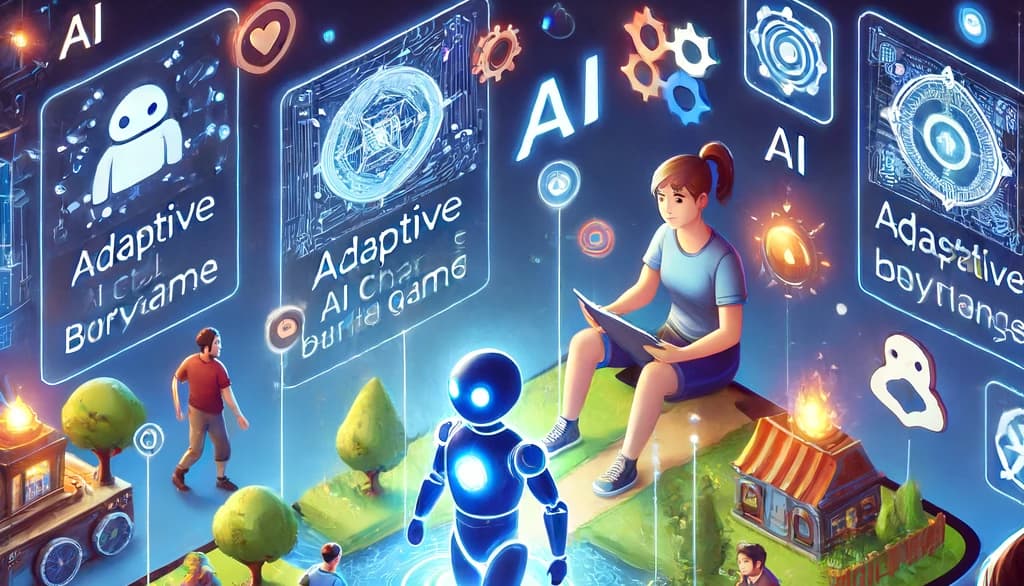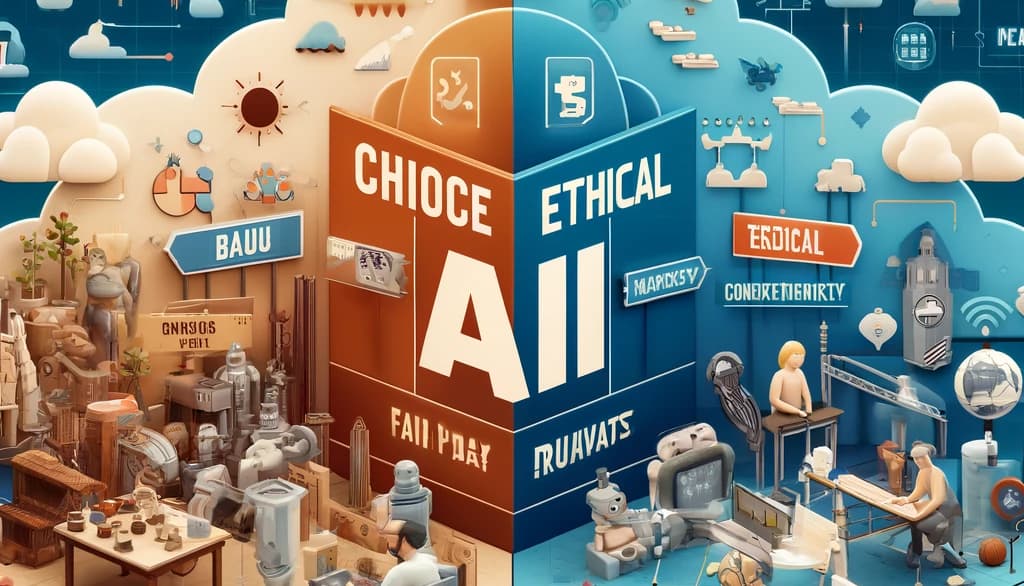Artificial Intelligence (AI) has become a transformative force in various industries, and the gaming sector is no exception. As browser games continue to evolve, integrating AI technologies has opened new horizons for developers and players alike.
This article delves into the significant impact of AI on browser game development, exploring how it enhances gameplay, user experience, and the overall gaming landscape. Whether you are a beginner or a seasoned professional, this comprehensive guide will provide valuable insights into the future of AI-driven browser games.
Introduction to AI in Browser Games
AI in browser games is not a novel concept, but recent advancements have significantly expanded its applications. From simple rule-based systems to complex neural networks, AI has become integral to creating more immersive and engaging gaming experiences.
Developers leverage AI to design intelligent non-player characters (NPCs), adaptive game environments, and personalized user experiences. By understanding player behavior and preferences, AI can tailor the game to meet individual needs, resulting in higher player satisfaction and retention rates.
The Evolution of Browser Game Development
The journey of browser game development has been marked by rapid technological advancements. Initially, browser games were simplistic, with limited graphics and interactivity. However, the advent of HTML5 and WebGL has revolutionized this space, allowing for more sophisticated and visually appealing games.
AI has played a crucial role in this evolution. By enabling more complex game mechanics and enhancing visual and interactive elements, AI has pushed the boundaries of what browser games can achieve. This evolution continues as developers explore new ways to integrate AI into game design and development processes.
Understanding AI and Its Applications in Gaming
AI encompasses a broad range of technologies, including machine learning, natural language processing, and computer vision. In the context of gaming, AI is used to create more realistic and responsive game environments and characters.
Applications of AI in gaming include procedural content generation, where AI algorithms create game content dynamically, and player behavior analysis, which helps developers understand and predict player actions. These applications not only enhance gameplay but also improve the overall user experience by making games more engaging and personalized.

AI-Powered Game Design: Creating Dynamic and Adaptive Worlds
One of the most exciting applications of AI in game design is the creation of dynamic and adaptive worlds. AI can generate game environments that change and evolve based on player interactions, making each gaming session unique.
This adaptability extends to NPCs, which can learn and adapt their behavior over time. By incorporating AI, developers can create more lifelike and challenging opponents, providing players with a more immersive and satisfying gaming experience.
Enhancing User Experience with AI
User experience is a critical factor in the success of any game. AI enhances user experience by personalizing gameplay and providing adaptive challenges that keep players engaged. By analyzing player data, AI can adjust difficulty levels, suggest in-game purchases, and even provide personalized tips and tutorials.
Furthermore, AI can be used to create more intuitive and responsive game controls, improving accessibility for players of all skill levels. These enhancements ensure that players have a positive and enjoyable experience, encouraging them to return to the game.
AI Techniques for Procedural Content Generation
Procedural content generation (PCG) is a technique where AI algorithms create game content in real-time. This approach allows for endless variations of game environments, levels, and challenges, providing players with a unique experience each time they play.
AI-driven PCG can also reduce development time and costs, as it automates the creation of game assets. This allows developers to focus on other aspects of game design, such as storytelling and gameplay mechanics, ultimately resulting in a richer and more diverse gaming experience.
Machine Learning and Player Behavior Analysis
Machine learning (ML) is a subset of AI that focuses on developing algorithms that can learn from and make predictions based on data. In gaming, ML is used to analyze player behavior and preferences, helping developers create more engaging and personalized experiences.
By understanding how players interact with the game, ML algorithms can identify patterns and trends, allowing developers to make informed decisions about game design and updates. This data-driven approach ensures that games remain relevant and appealing to their audience.
AI-Driven NPC Behavior and Interaction
Non-player characters (NPCs) are a staple of many games, providing players with challenges, assistance, and narrative depth. AI-driven NPCs can exhibit more realistic and responsive behavior, making interactions more engaging and believable.
Advanced AI techniques, such as reinforcement learning, enable NPCs to learn and adapt their behavior based on player actions. This creates a more dynamic and unpredictable gaming experience, as players must continuously adapt their strategies to overcome evolving challenges.
Optimizing Game Performance with AI
AI can also be used to optimize game performance, ensuring that games run smoothly across various devices and platforms. By analyzing system performance and resource usage, AI algorithms can make real-time adjustments to maintain optimal performance.
These optimizations can include adjusting graphics settings, managing memory usage, and balancing server loads. By leveraging AI, developers can provide players with a seamless and enjoyable gaming experience, regardless of their hardware or network conditions.
Challenges and Ethical Considerations of AI in Games
While AI offers many benefits, it also presents challenges and ethical considerations. Ensuring that AI algorithms are fair and unbiased is critical, as biased AI can negatively impact the gaming experience and player perception.
Additionally, developers must consider the ethical implications of AI-driven personalization and data collection. Transparency and user consent are essential to maintaining player trust and ensuring that AI is used responsibly and ethically in game development.

Case Studies: Successful Implementations of AI in Browser Games
Several browser games have successfully integrated AI to enhance gameplay and user experience. For example, AI-driven procedural content generation has been used in games like “Endless Legend,” providing players with unique and dynamic worlds to explore.
Another successful implementation is the use of AI for player behavior analysis in games like “Fortnite,” where AI algorithms help balance gameplay and provide personalized challenges. These case studies demonstrate the potential of AI to transform browser game development and deliver more engaging and immersive experiences.
The Future of AI in Browser Game Development
The future of AI in browser game development is bright, with continued advancements in AI technologies promising even more innovative and exciting applications. As AI algorithms become more sophisticated, we can expect to see even greater improvements in game design, user experience, and performance optimization.
Developers will continue to explore new ways to integrate AI into their games, pushing the boundaries of what is possible and creating more immersive and engaging experiences for players. The future of AI-driven browser games is full of potential, and the journey has only just begun.
Conclusion: Embracing AI for the Next Generation of Browser Games
In conclusion, AI is a powerful tool that is transforming the landscape of browser game development. By enhancing gameplay, improving user experience, and optimizing performance, AI is enabling developers to create more immersive and engaging games.
As we look to the future, the continued integration of AI into browser games promises to deliver even more innovative and exciting experiences. By embracing AI, developers can unlock new possibilities and ensure that the next generation of browser games is more dynamic, adaptive, and enjoyable than ever before.